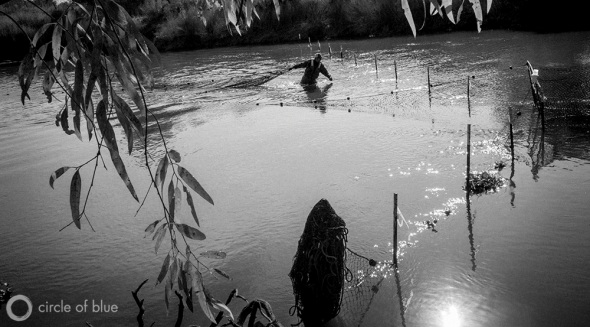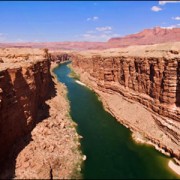The Stream, October 16: World Food Day
World Food Day
Yesterday was Global Handwashing Day, and today brings another notable global calendar date – World Food Day! First established by the Food and Agriculture Organization of the United Nations in 1979, the annual World Food Day was adopted by UN Resolution 35/70 of 5 December 1980. Follow this link to the FAO site and find out all you need to get involved. The non-profit Oxfam International has gone one step beyond World Food Day, and celebrates GrowWeek 2012 throughout this week.
The United Nations News Centre reported that yesterday’s Committee on World Food Security was optimistic overall about the possibility to reach the Millennium Development Goals (MGDs) to reduce hunger. Director-General of the Food and Agriculture Organization, José Graziano da Silva, said that while progress had been achieved, countries need to step up their efforts to meet the MGDs by the 2015 deadline.
A story from the front lines of the water-food nexus comes from a Businessweek report that South African farmers are suffering from a funding gap in water infrastructure. The cost to repair the country’s water infrastructure is twice of what it can afford.
Invasive Species
The Herald Sun reports on the devastating effects that Australian wattle has on South Africa’s water and land. Originally brought to South Africa as a “miracle” for sand stabilization and timber, wattle is estimated to cost South Africa $440 million a year.
In the U.S. the Bureau of Reclamation released a Final Environmental Assessment finding No Significant Impact for the San Joaquin River Restoration program invasive plant monitoring and management program in California.
Rogue and Possibly Illegal Climate Change Mitigation
According to an article by The Guardian, a businessman may be in international legal trouble after the experimental dumping of 100 tonnes of iron sulphate into the Pacific under the auspices of a “salmon enhancement project.” The tenuous technique known as ocean fertilisation aims to capture carbon dioxide by spurring plankon booms. The Guardian quoted Dalhouse University oceanographer John Cullen, who said “It is difficult if not impossible to detect and describe important effects that we know might occur months or years later.”
The Stream is a daily digest spotting global water trends. To get more water news, follow Circle of Blue on Twitter and sign up for our newsletter.
is an editorial intern for Circle of Blue based out of Traverse City, Michigan. She holds a BA in International Relations from Michigan State University’s James Madison College. Her interests include water pricing, environmental economics and policy, and conflict mediation.






Leave a Reply
Want to join the discussion?Feel free to contribute!